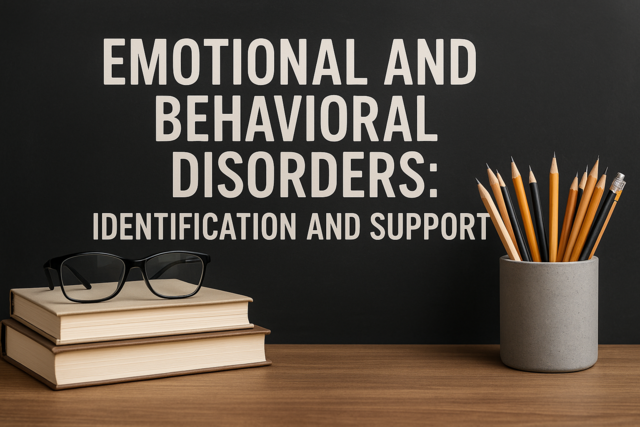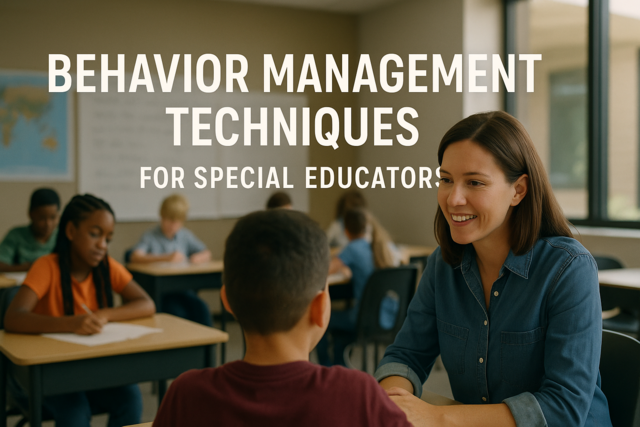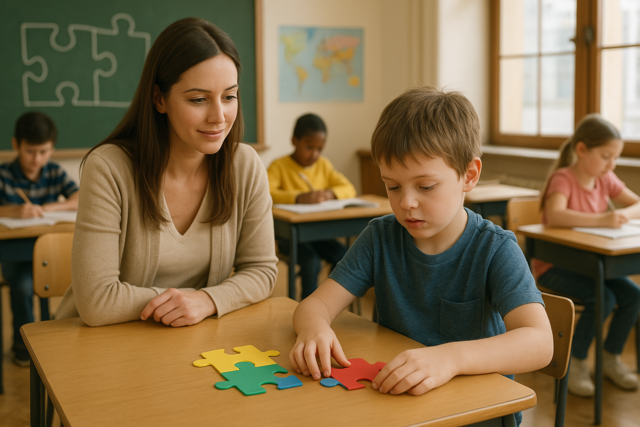Online Class: Promoting Social Skills in Special Education

-
15Lessons
-
22Exams &
Assignments -
5Hours
average time -
0.5CEUs
Course Description
In a world where fostering understanding and building bridges across diverse landscapes is more crucial than ever, "Promoting Social Skills in Special Education" stands out as an essential journey—for both seasoned educators and those freshly stepping onto the path. This transformative course is more than just a learning experience; it is a call to those who believe in the boundless potential of every individual and the power of inclusive education. Here, you will find the tools and inspiration to incite real change and nurture an environment where all students can thrive socially and academically.
Imagine a classroom where each child, regardless of their abilities, communicates effectively, feels included, and confidently navigates their social world. This is not just an ideal—it is an achievable reality that this course is designed to help you realize. Through a unique blend of innovative strategies and heartfelt guidance, you will become adept at creating an environment that not only embraces diversity but celebrates it.
The journey begins by diving into the heart of social development, uncovering bespoke methods to awaken potential within special education learners. You will explore how role-playing and interactive tools aren't just techniques but are gateways to empowering students, enabling them to face life's myriad social scenarios with increased assurance and success. You will reimagine peer interactions, breaking down barriers to create a tapestry of inclusivity woven with empathy, respect, and mutual growth.
However, what makes this course truly exceptional isn't just its comprehensive approach but its focus on practice over theory, action over ideas. By engaging in collaborative projects and simulated environments, you will experience firsthand the transformative impact of empathy-led teaching, equipping you with the skills to transform classroom dynamics. Through the use of visual and technological aids, you'll not only enhance student engagement but also breathe life into learning, making it vivid and interactive.
Have you ever pondered the role of family dynamics in shaping social skills? Or how assistive technology's evolution can redefine educational landscapes? This course invites you to delve deeper into these facets, encouraging a holistic approach that encompasses every stakeholder in a student's education journey. It offers insights into how fostering empathetic communication within families and utilizing cutting-edge technology can bridge gaps in understanding and ability, crafting a learning environment that is both inclusive and forward-looking.
Another cornerstone of this course is addressing the all-too-common yet complex issue of bullying, particularly within special settings. You will be equipped with the ability to cultivate a culture of respect and support, paving the way for peaceful and constructive school communities. By learning to tailor interventions to fit individual needs, embracing both quantitative and qualitative methods, you will acquire the nuanced art of turning challenges into opportunities for growth.
Every lesson in this course is designed not just to educate but to inspire and empower. Each strategy you learn, each skill you practice, will arm you not just with the knowledge but the confidence to effect change. Whether you are an educator, a parent, or simply someone with a passion for inclusive living, this course speaks directly to your aspirations and invites you to be part of something greater—a movement toward transformational education.
The road to making a difference in special education is filled with possibilities, and "Promoting Social Skills in Special Education" is not merely a map; it is your compass. Join us on this enlightening journey. Watch as it unfolds into a professional and personal growth experience that will resonate throughout your career and beyond. There is no better time to invest in the future—your own, your students', and indeed, our society's. Enroll now, step into your potential, and start making a lasting impact today.
- Business
- Business Ethics Courses
- Harassment Prevention Courses
- Human Resources Certifications
- Management
- Aromatherapy Courses
- Caregiver Courses
- Career Development Courses
- Communications Courses
- Confidence and Self Esteem Courses
- Healing
- Human Anatomy Courses
- Medical Skills
- Health & Medicine
- Nutrition
- Marketing
- Microsoft Office Certification Courses
- Life Coaching Courses
- Self-Improvement
- Small Business Certifications
- Safety
- Writing Improvement
- Business Writing Courses
Course Lessons
Lesson 1. Catalyzing Change: Social Development Methods for Special Needs
 Review Practice Worksheet: Lesson-1-Downloadable-14556.pdf
Review Practice Worksheet: Lesson-1-Downloadable-14556.pdf Lesson discussions: Reasons for Taking this Course
Lesson discussions: Reasons for Taking this Course Complete: Lesson 1 Activity
Complete: Lesson 1 Activity Assessment: Lesson 1 Review Exam
Assessment: Lesson 1 Review Exam
Lesson 2. Rethinking Peer Interactions for Inclusive Learning
 Review Practice Worksheet: Lesson-2-WorkSheet-14560.pdf
Review Practice Worksheet: Lesson-2-WorkSheet-14560.pdf Complete: Lesson 2 Activity
Complete: Lesson 2 Activity Assessment: Lesson 2 Review Exam
Assessment: Lesson 2 Review Exam
Lesson 3. The Three Pillars of Empathy: A Path to Inclusivity in Education
 Review Practice Worksheet: Lesson-3-WordSearch-14564.pdf
Review Practice Worksheet: Lesson-3-WordSearch-14564.pdf Assessment: Lesson 3 Review Exam
Assessment: Lesson 3 Review Exam
Lesson 4. Cultivating Compassion and Social Skills in Special Education
 Review Practice Worksheet: Lesson-4-WordSearch-14567.pdf
Review Practice Worksheet: Lesson-4-WordSearch-14567.pdf Complete: Lesson 4 Activity
Complete: Lesson 4 Activity Assessment: Lesson 4 Review Exam
Assessment: Lesson 4 Review Exam
Lesson 5. Nurturing Emotional Intelligence and Conflict Resolution
 Review Practice Worksheet: Lesson-5-HomeWork-14571.pdf
Review Practice Worksheet: Lesson-5-HomeWork-14571.pdf Complete: Lesson 5 Activity
Complete: Lesson 5 Activity Assessment: Lesson 5 Review Exam
Assessment: Lesson 5 Review Exam
Lesson 6. Innovating Social Skills with Visual Supports
 Review Practice Worksheet: Lesson-6-WordSearch-14575.pdf
Review Practice Worksheet: Lesson-6-WordSearch-14575.pdf Assessment: Lesson 6 Review Exam
Assessment: Lesson 6 Review Exam
Lesson 7. Real-Life Practice: Role-Playing for Inclusive Growth
 Review Practice Worksheet: Lesson-7-WordSearch-14578.pdf
Review Practice Worksheet: Lesson-7-WordSearch-14578.pdf Complete: Lesson 7 Activity
Complete: Lesson 7 Activity Assessment: Lesson 7 Review Exam
Assessment: Lesson 7 Review Exam
Lesson 8. Fostering Empathetic Communication in Special Education
 Review Practice Worksheet: Lesson-8-WordSearch-14581.pdf
Review Practice Worksheet: Lesson-8-WordSearch-14581.pdf Assessment: Lesson 8 Review Exam
Assessment: Lesson 8 Review Exam
Lesson 9. Crafting Individualized Strategies for Enhanced Learning Outcomes
 Review Practice Worksheet: Lesson-9-WorkSheet-14585.pdf
Review Practice Worksheet: Lesson-9-WorkSheet-14585.pdf Assessment: Lesson 9 Review Exam
Assessment: Lesson 9 Review Exam
Lesson 10. Family Dynamics and Social Skills
 Review Practice Worksheet: Lesson-10-Activity-14588.pdf
Review Practice Worksheet: Lesson-10-Activity-14588.pdf Assessment: Lesson 10 Review Exam
Assessment: Lesson 10 Review Exam
Lesson 11. The Evolution of Assistive Technology and Its Impact on Educators and Students
 Review Practice Worksheet: Lesson-11-Activity-14591.pdf
Review Practice Worksheet: Lesson-11-Activity-14591.pdf Complete: Lesson 11 Activity
Complete: Lesson 11 Activity Assessment: Lesson 11 Review Exam
Assessment: Lesson 11 Review Exam
Lesson 12. Fostering Essential Social Skills in Special Education
 Review Practice Worksheet: Lesson-12-WorkSheet-14595.pdf
Review Practice Worksheet: Lesson-12-WorkSheet-14595.pdf Complete: Lesson 12 Activity
Complete: Lesson 12 Activity Assessment: Lesson 12 Review Exam
Assessment: Lesson 12 Review Exam
Lesson 13. Role-Play: Cultivating Confidence and Social Skills
 Review Practice Worksheet: Lesson-13-Activity-14598.pdf
Review Practice Worksheet: Lesson-13-Activity-14598.pdf Assessment: Lesson 13 Review Exam
Assessment: Lesson 13 Review Exam
Lesson 14. Empowering Inclusive Education: Addressing Bullying in Special Settings
 Review Practice Worksheet: Lesson-14-Activity-14602.pdf
Review Practice Worksheet: Lesson-14-Activity-14602.pdf Assessment: Lesson 14 Review Exam
Assessment: Lesson 14 Review Exam
Lesson 15. Tailoring Social Skills Interventions for Special Needs Students
 Review Practice Worksheet: Lesson-15-WorkSheet-14606.pdf
Review Practice Worksheet: Lesson-15-WorkSheet-14606.pdf Lesson discussions: End of Course Poll; Course Comments
Lesson discussions: End of Course Poll; Course Comments Assessment: Lesson 15 Review Exam
Assessment: Lesson 15 Review Exam
Learning Outcomes
- Demonstrate the ability to engage in group activities by effectively using social cues and communication strategies.
- Identify appropriate social responses in various scenarios demonstrated through role-play and interactive exercises.
- Identify and implement two technological tools that support communication in special education, demonstrating their use in fostering inclusive learning environments.
- Recognize and describe at least three social norms that enhance group activity participation, ensuring harmonious interactions and mutual respect among peers.
- Demonstrate the ability to apply empathy in classroom interactions through role-playing and storytelling exercises, enhancing social cohesion among students with diverse needs.
- Identify and distinguish between the three primary components of empathy: affective, cognitive, and compassionate empathy.
- Define the key components that contribute to positive peer interactions within special education settings, including empathy, respect, and effective communication skills.
- Demonstrate improved social competence by applying conflict-resolution strategies and interpreting social cues in varied peer interaction scenarios within special education settings.
- Demonstrate the ability to apply conflict resolution strategies, such as emotional intelligence and role-playing, to foster inclusion and reduce tensions among students.
- Identify and analyze the root causes of conflicts within educational settings, including cultural and behavioral influences on student interactions.
- Define effective communication strategies using Social Stories and Comic Strip Conversations to enhance social interaction among special education students.
- Demonstrate the ability to create personalized visual supports that facilitate social skill mastery in special education environments.
- Define role-playing as an educational strategy aimed at enhancing social skills among students with special needs through interactive, experiential learning exercises.
- Demonstrate mastery of lesson content at levels of 70% or higher.
Additional Course Information

- Document Your Lifelong Learning Achievements
- Earn an Official Certificate Documenting Course Hours and CEUs
- Verify Your Certificate with a Unique Serial Number Online
- View and Share Your Certificate Online or Download/Print as PDF
- Display Your Certificate on Your Resume and Promote Your Achievements Using Social Media

Related Courses
-
 5 hours
0.5 CEUs
The Harmony Hub: Fostering Connection in Busy Lives
+ More Info
5 hours
0.5 CEUs
The Harmony Hub: Fostering Connection in Busy Lives
+ More Info
-
 4 hours
0.4 CEUs
Business Writing for Professionals
+ More Info
4 hours
0.4 CEUs
Business Writing for Professionals
+ More Info
-
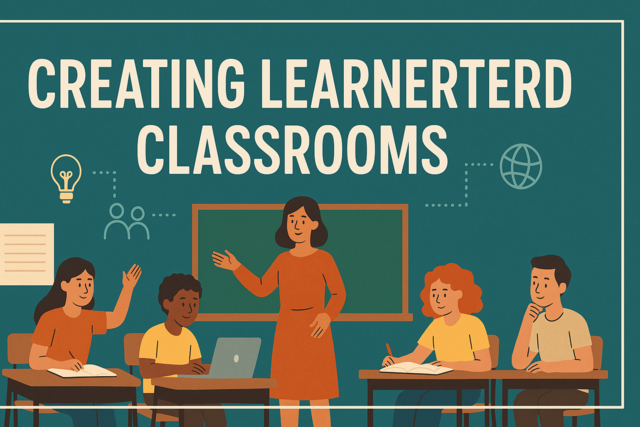 6 hours
0.6 CEUs
Creating Learner-Centered Classrooms
+ More Info
6 hours
0.6 CEUs
Creating Learner-Centered Classrooms
+ More Info
-
 3 hours
0.3 CEUs
Effective Teaching Strategies for Diverse Classrooms
+ More Info
3 hours
0.3 CEUs
Effective Teaching Strategies for Diverse Classrooms
+ More Info
-
 3 hours
0.3 CEUs
Exploring Parallel Universes
+ More Info
3 hours
0.3 CEUs
Exploring Parallel Universes
+ More Info
-
 6 hours
0.6 CEUs
The Art of Dressing: Mastering High-End Menswear
+ More Info
6 hours
0.6 CEUs
The Art of Dressing: Mastering High-End Menswear
+ More Info
-
 4 hours
0.4 CEUs
Narratives of Love: Crafting Your Relationship Story
+ More Info
4 hours
0.4 CEUs
Narratives of Love: Crafting Your Relationship Story
+ More Info
-
 7 hours
0.7 CEUs
Spiritual Awakening and Self-Discovery
+ More Info
7 hours
0.7 CEUs
Spiritual Awakening and Self-Discovery
+ More Info
-
 5 hours
0.5 CEUs
Advanced Writing and Editing Skills
+ More Info
5 hours
0.5 CEUs
Advanced Writing and Editing Skills
+ More Info
-
 5 hours
0.5 CEUs
Conscious Living: Mastering Mindfulness
+ More Info
5 hours
0.5 CEUs
Conscious Living: Mastering Mindfulness
+ More Info
-
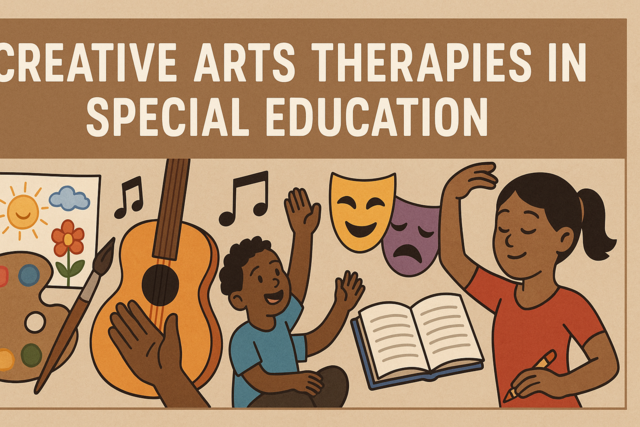 3 hours
0.3 CEUs
Creative Arts Therapies in Special Education
+ More Info
3 hours
0.3 CEUs
Creative Arts Therapies in Special Education
+ More Info
-
 3 hours
0.3 CEUs
Dapper & Distinguished: Men's Fashion Essentials
+ More Info
3 hours
0.3 CEUs
Dapper & Distinguished: Men's Fashion Essentials
+ More Info
-
 7 hours
0.7 CEUs
The Unseen Energies in the Universe
+ More Info
7 hours
0.7 CEUs
The Unseen Energies in the Universe
+ More Info
-
 4 hours
0.4 CEUs
Understanding Artificial Intelligence
+ More Info
4 hours
0.4 CEUs
Understanding Artificial Intelligence
+ More Info
-
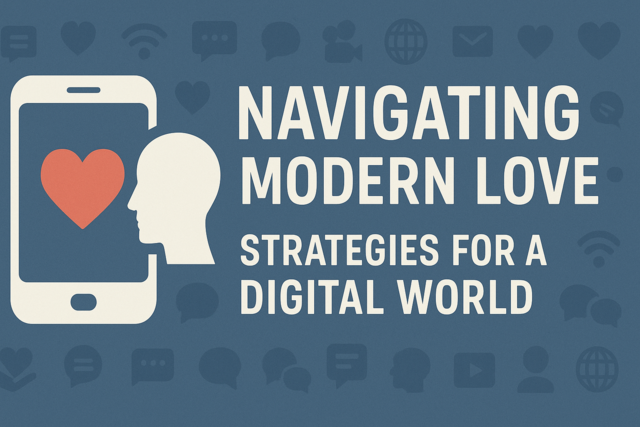 6 hours
0.6 CEUs
Navigating Modern Love: Strategies for a Digital World
+ More Info
6 hours
0.6 CEUs
Navigating Modern Love: Strategies for a Digital World
+ More Info
-
 7 hours
0.7 CEUs
Modern Mindfulness: Being Present in an Age of Distraction
+ More Info
7 hours
0.7 CEUs
Modern Mindfulness: Being Present in an Age of Distraction
+ More Info
-
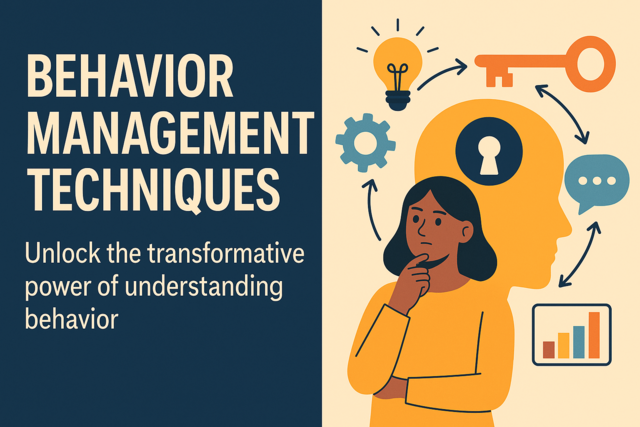 6 hours
0.6 CEUs
Behavior Management Techniques
+ More Info
6 hours
0.6 CEUs
Behavior Management Techniques
+ More Info
-
 5 hours
0.5 CEUs
Advanced Pedagogical Techniques
+ More Info
5 hours
0.5 CEUs
Advanced Pedagogical Techniques
+ More Info
-
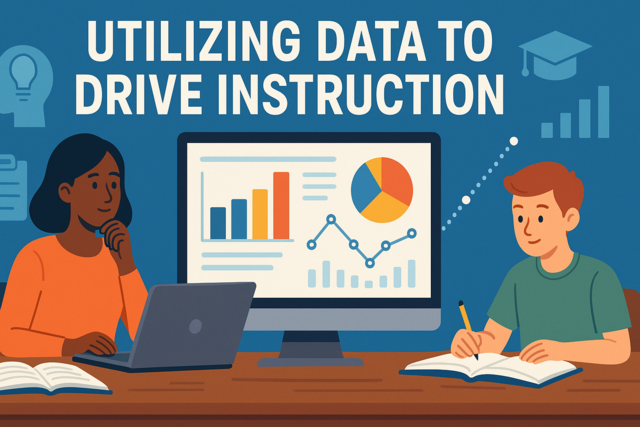 5 hours
0.5 CEUs
Utilizing Data to Drive Instruction
+ More Info
5 hours
0.5 CEUs
Utilizing Data to Drive Instruction
+ More Info
-
 3 hours
0.3 CEUs
Career Resilience and Adaptability
+ More Info
3 hours
0.3 CEUs
Career Resilience and Adaptability
+ More Info
-
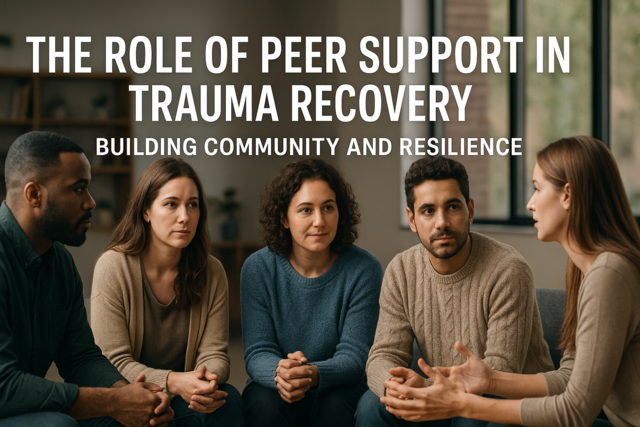 3 hours
0.3 CEUs
The Role of Peer Support in Trauma Recovery: Building Community and Resilience
+ More Info
3 hours
0.3 CEUs
The Role of Peer Support in Trauma Recovery: Building Community and Resilience
+ More Info
-
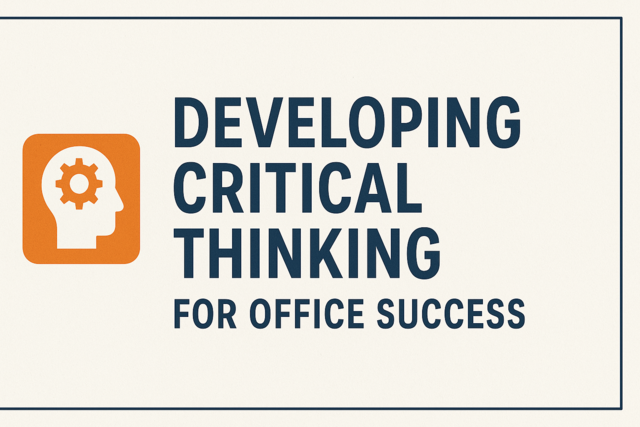 4 hours
0.4 CEUs
Developing Critical Thinking for Office Success
+ More Info
4 hours
0.4 CEUs
Developing Critical Thinking for Office Success
+ More Info
-
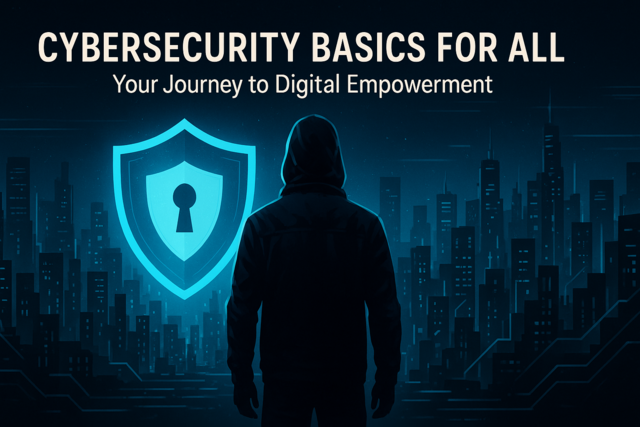 3 hours
0.3 CEUs
Cybersecurity Basics for All
+ More Info
3 hours
0.3 CEUs
Cybersecurity Basics for All
+ More Info
-
 6 hours
0.6 CEUs
Leadership Skills for Instructional Coaches
+ More Info
6 hours
0.6 CEUs
Leadership Skills for Instructional Coaches
+ More Info
-
 6 hours
0.6 CEUs
Supporting Students with Special Needs
+ More Info
6 hours
0.6 CEUs
Supporting Students with Special Needs
+ More Info
-
 5 hours
0.5 CEUs
Developing a Growth Mindset
+ More Info
5 hours
0.5 CEUs
Developing a Growth Mindset
+ More Info
-
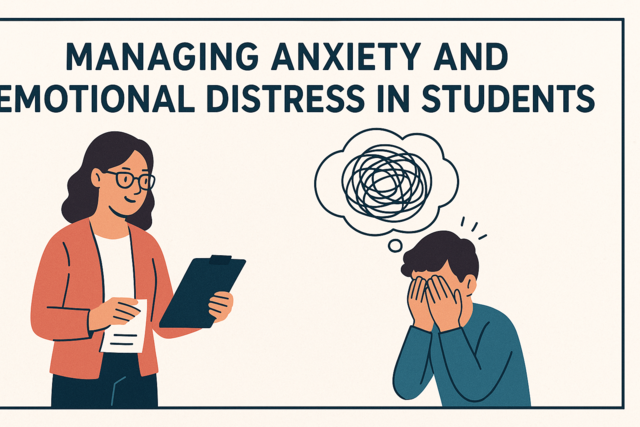 6 hours
0.6 CEUs
Managing Anxiety and Emotional Distress in Students
+ More Info
6 hours
0.6 CEUs
Managing Anxiety and Emotional Distress in Students
+ More Info
-
 3 hours
0.3 CEUs
Essentials of Contract Negotiation
+ More Info
3 hours
0.3 CEUs
Essentials of Contract Negotiation
+ More Info
-
 7 hours
0.7 CEUs
The Dynamics of Desire: Understanding Intimacy and Attraction
+ More Info
7 hours
0.7 CEUs
The Dynamics of Desire: Understanding Intimacy and Attraction
+ More Info
-
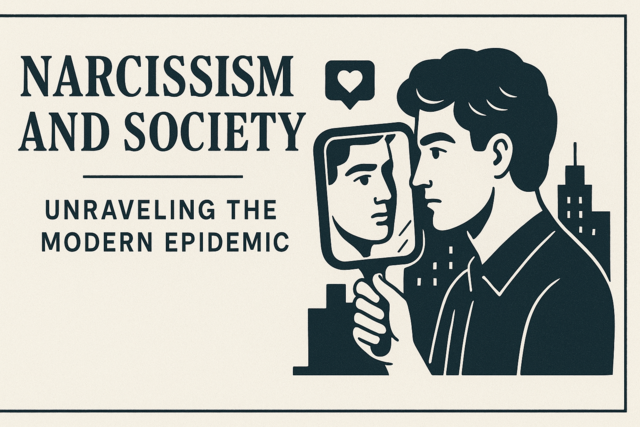 6 hours
0.6 CEUs
Narcissism and Society: Unraveling the Modern Epidemic
+ More Info
6 hours
0.6 CEUs
Narcissism and Society: Unraveling the Modern Epidemic
+ More Info
-
 4 hours
0.4 CEUs
Polished Precision: Men's Guide to Luxurious Tailoring
+ More Info
4 hours
0.4 CEUs
Polished Precision: Men's Guide to Luxurious Tailoring
+ More Info
-
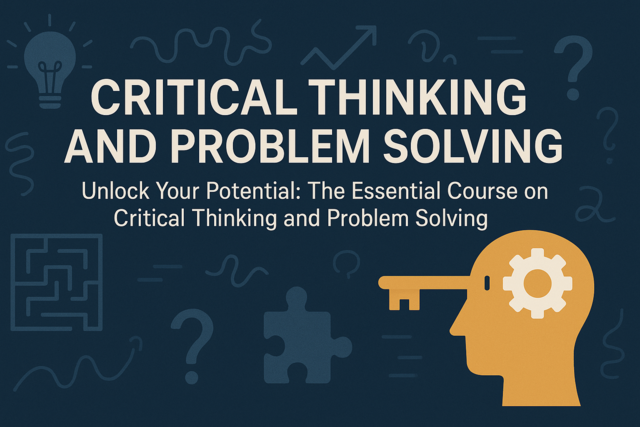 5 hours
0.5 CEUs
Critical Thinking and Problem Solving
+ More Info
5 hours
0.5 CEUs
Critical Thinking and Problem Solving
+ More Info
-
 5 hours
0.5 CEUs
The Relationship Reset: Rewriting Your Story Together
+ More Info
5 hours
0.5 CEUs
The Relationship Reset: Rewriting Your Story Together
+ More Info
-
 5 hours
0.5 CEUs
Boosting Productivity with Effective Email Management
+ More Info
5 hours
0.5 CEUs
Boosting Productivity with Effective Email Management
+ More Info
-
 3 hours
0.3 CEUs
Bermuda Triangle Mysteries
+ More Info
3 hours
0.3 CEUs
Bermuda Triangle Mysteries
+ More Info
-
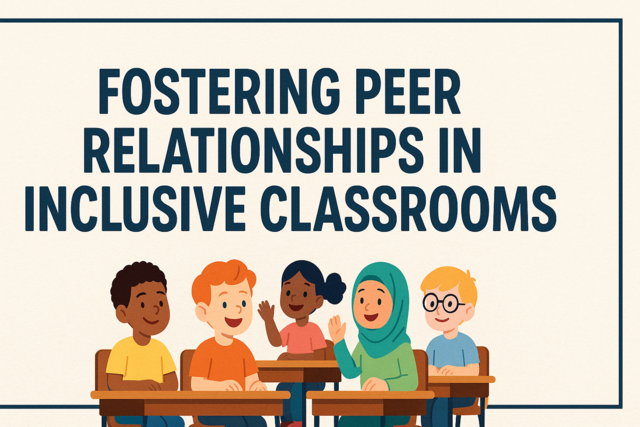 7 hours
0.7 CEUs
Fostering Peer Relationships in Inclusive Classrooms
+ More Info
7 hours
0.7 CEUs
Fostering Peer Relationships in Inclusive Classrooms
+ More Info
-
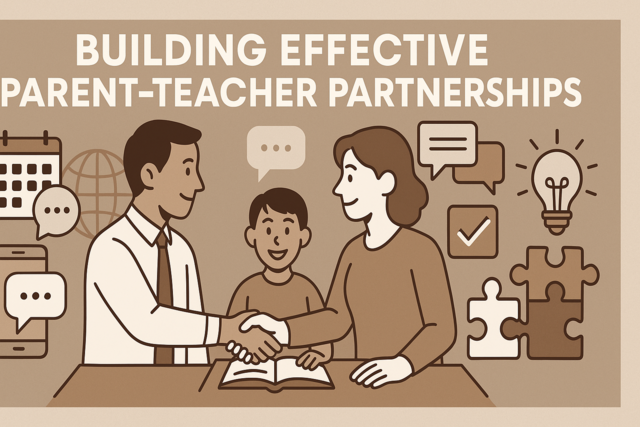 6 hours
0.6 CEUs
Building Effective Parent-Teacher Partnerships
+ More Info
6 hours
0.6 CEUs
Building Effective Parent-Teacher Partnerships
+ More Info
-
 7 hours
0.7 CEUs
Family Engagement and Support Strategies in Special Education
+ More Info
7 hours
0.7 CEUs
Family Engagement and Support Strategies in Special Education
+ More Info


